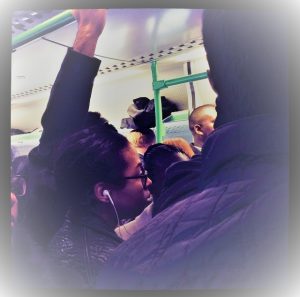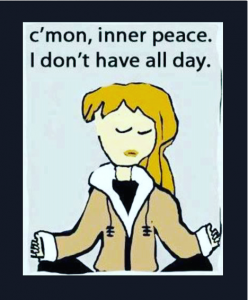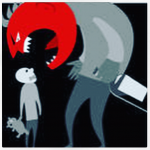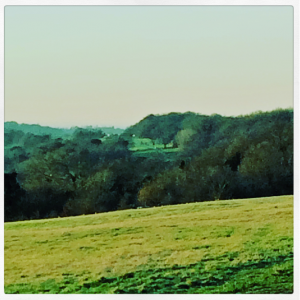#angermanagement (#angerUNmanagement)
 I would guess that 80% of the people I’ve ever worked with have spent a significant number of sessions sharing with me their longing to live somewhere other than London so they could experience peace more regularly. Some of my clients have even moved overseas to find a better quality of life. At least that’s why they said they were moving 😉
I would guess that 80% of the people I’ve ever worked with have spent a significant number of sessions sharing with me their longing to live somewhere other than London so they could experience peace more regularly. Some of my clients have even moved overseas to find a better quality of life. At least that’s why they said they were moving 😉
Most of us on the self-development / recovery trail have heard repeatedly that fantasy usually lies beneath the stories that we tell ourselves that start with the phrase “I’ll be happier when…”
“I’ll be happier when – I live in the countryside / by the sea / in a hut up a mountain”.
“I’ll be happier when – I’m earning £40k / work for myself / retire / get the Director position”
“I’ll be happier when – I meet my soul mate / get my divorce”
 The universal wisdom is that the thing we have the most control over is our inner state, that happiness / peace is an internal condition, that the truly wise learn to turn within, in any environment, and cultivate peace regardless of their surroundings and situations. And I’m not disagreeing. If we wait until all the conditions are right and for peace to come to us, we’ll be in for a long wait. And wherever you go, you’re going to take your head with you, and when the problem is the way your head works, then… Fortunately, we are blessed to live in this age – there are so many tools to be found in the positive psychology movement, and in the realm of CBT, and we have unprecedented freedom to explore spiritual traditions that appeal to us for practices that help us experience well-being regardless of our circumstances.
The universal wisdom is that the thing we have the most control over is our inner state, that happiness / peace is an internal condition, that the truly wise learn to turn within, in any environment, and cultivate peace regardless of their surroundings and situations. And I’m not disagreeing. If we wait until all the conditions are right and for peace to come to us, we’ll be in for a long wait. And wherever you go, you’re going to take your head with you, and when the problem is the way your head works, then… Fortunately, we are blessed to live in this age – there are so many tools to be found in the positive psychology movement, and in the realm of CBT, and we have unprecedented freedom to explore spiritual traditions that appeal to us for practices that help us experience well-being regardless of our circumstances.
And yet, this morning in particular, I got a first-hand dose of the need for really skilful navigation of the waters of self-help-tools. Since my motorbike crash, I’ve been confined to the use of public transport for my commute, and honestly, I just don’t know how anyone does it. Let the photo be Exhibit A. Back in the early to mid 70s, there was already research going on into the effects of over-crowding on people’s stress-levels. The more we’re crammed in, in trains, or houses, or neighbourhoods, and the less control we have over being in a crowded situation, the higher our stress levels get, as measured in terms of adrenaline and catecholamine secretion. People who travel and work and live in what they perceive to be overcrowded environments just are going to have almost constantly elevated stress levels. The natural human craving for space is easily converted into defensiveness, aggression, and withdrawal into non-social behaviours. Being jolted around with your face millimetres from someone’s rough backpack, you can be forgiven for believing that if you were standing quietly in the park, or on a beach in Thailand, you’d be happier. Because you probably would be. Or at least, there would be a lot less environmental stress affecting your neurochemistry (all things being equal). But I wasn’t in a park. And whilst it’s probably true that my perimenopause is part of the picture, I was starting to experience something that felt disconcertingly like rage.
I wanted to feel peace. I was feeling rage. How the @&%$#! do we get from rage to peace using self-help tools and without recourse to weapons?!
Should I try breathing in white coloured light? Find compassion in my heart for my fellow cattle-commuters? Should I try to remember all the things I’m grateful for? Perhaps I should just do my best with my usual morning prayer and meditation sequence – after all, “trying to meditate IS meditating”…
None of those options are wrong. I use all of those tools at different times. But hopefully you’ll know what I mean if I say that sometimes, the idea of trying some practices just, well, kind of makes you want to kill something a little bit more. And then if you’re not careful, you’re in a subtle, or not so, shame-spiral. “If I had spiritual discipline I’d do it anyway”. “I’m lazy”. “See, you can only do it when it’s easy.” (I’m not dissing discipline, but there’s an easy flip for some of us from knowing discipline is important into beating ourselves around the head with it.)
I ended up getting off the train for 10 minutes in the hope that the next one would be easier. It was worse. And really, I needed to get to work. Peace was going to have to stay out of reach. I was going to have to surrender. I think it was Pema Chodron who said that negativity isn’t the problem. It’s negative negativity. Meaning, getting negative about feeling negative. Fighting it. Wanting it to change. I mean, of course we want it to change. But that’s the paradox.
The quickest pathway to change is the pathway of acceptance.
So I started to straightforwardly breathe the rage in, rather than trying to fend it off. Naming to myself, affirming to myself, that yes, I was feeling really [EXPLETIVE] angry; trying to feel the detailed sensations in my body of feeling enraged, simply allowing myself to feel that way.
The wisdom of the mindfulness tradition is that rather than focusing our attention on, say, the candle flame, and hoping to escape the feelings disturbing our peace, those feelings become the candle flame, and we discover that our peace can include them.
 The importance of this for so many of us (and particularly for ACOAs / codependents / those living with c-PTSD / those of us who are often anxiously-attached), and in particular when it comes to anger, is that the programming we are trying to undo is that it isn’t OK to feel angry. My good friend K and I hypothesised together several years ago that there is probably a very significant link between anxiety and anger. It’s a well-established understanding in the psychotherapeutic community that depression can often be “anger turned inwards”. I wonder whether anxiety is the psyche’s reaction to flickers of anger. If you’ve learned that your own anger is usually punished or shamed, or that other people’s anger is dangerous and out of control, then it’s rational that the beginnings of angry feelings might trigger anxiety. The association might have been so powerful that we aren’t even aware of the start of anger, only the reflexive anxiety.
The importance of this for so many of us (and particularly for ACOAs / codependents / those living with c-PTSD / those of us who are often anxiously-attached), and in particular when it comes to anger, is that the programming we are trying to undo is that it isn’t OK to feel angry. My good friend K and I hypothesised together several years ago that there is probably a very significant link between anxiety and anger. It’s a well-established understanding in the psychotherapeutic community that depression can often be “anger turned inwards”. I wonder whether anxiety is the psyche’s reaction to flickers of anger. If you’ve learned that your own anger is usually punished or shamed, or that other people’s anger is dangerous and out of control, then it’s rational that the beginnings of angry feelings might trigger anxiety. The association might have been so powerful that we aren’t even aware of the start of anger, only the reflexive anxiety.
I could talk and write about anger, and anxiety, for hours. I still have an under-developed relationship with the former and an over-developed relationship with the latter. For now, I want to come back around to that longing that most of us feel for peace, and that conviction that so many of us have that we’d find more peace if we lived in a more spacious and natural environment.
I believe we’re right.
 But I don’t believe that we’re doomed to stress and an absence of peace until we can afford to permanently relocate, and we also don’t have to punish ourselves by insisting that we must always learn to find peace in difficult conditions. I know how easy it is to be absolutist, but I also know that even five minutes a day standing in my garden, or a park, makes a difference. That a quiet walk up a hill or through some trees once every couple of weeks is restorative. That it’s possible to make time a few times a year for a couple of days away somewhere out of town. And lastly – the imagination is a realm entirely within our reach at all times, and as brain-activity mapping experiments have recently shown, the brain does not easily distinguish between what is real and what is imagined. If all other options are currently out of reach, close your eyes and craft a natural landscape for yourself to imagine taking a lingering walk through, and breathe it in for two or three minutes.
But I don’t believe that we’re doomed to stress and an absence of peace until we can afford to permanently relocate, and we also don’t have to punish ourselves by insisting that we must always learn to find peace in difficult conditions. I know how easy it is to be absolutist, but I also know that even five minutes a day standing in my garden, or a park, makes a difference. That a quiet walk up a hill or through some trees once every couple of weeks is restorative. That it’s possible to make time a few times a year for a couple of days away somewhere out of town. And lastly – the imagination is a realm entirely within our reach at all times, and as brain-activity mapping experiments have recently shown, the brain does not easily distinguish between what is real and what is imagined. If all other options are currently out of reach, close your eyes and craft a natural landscape for yourself to imagine taking a lingering walk through, and breathe it in for two or three minutes.
Claire @ A Time To Heal
PS if you’d like to spend a couple of days away from town working with your anxiety creatively and in nature, my next workshop is on the weekend of the 29th and 30th April, 25 minutes south of London by train, in the beautiful Caterham Valley . You can find out more here.
